CEMUS has since the first idea of doing a multidisciplinary, environment-and-development, student-led course been a place that have brought together different people of all ages, passions, knowledges and life experiences. Students from different academic backgrounds meeting each other in intense and fun discussions, meeting guest lecturers bringing in research and practical understandings and perspectives, meeting course coordinators facilitating creative workshops and collaborative seminars. On this page we introduce CEMUS Critical Friends (affiliated teachers, researchers and contributors) that have been connected to CEMUS for a long time and now are involved in our courses and outreach activities.
Kevin Anderson, Professor Tyndall Centre, University of Manchester, Adjunct Professor University of Bergen and visiting Professor Uppsala University
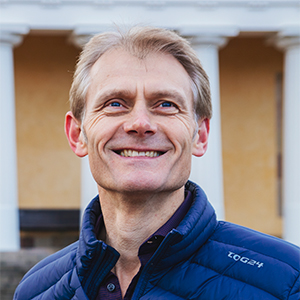 Kevin Anderson is professor of Energy and Climate Change, Tyndall Centre for Climate Change Research, at the University of Manchester. He was the second Zennström visiting professor in Climate Change Leadership at Uppsala University, now visiting professor at Uppsala University and adjunct professor at the University of Bergen. Kevin is a well-known and established researcher within climate change science who engages frequently with policy-makers, the private sector, civil society as well as the media. He has pioneered research on carbon budgets and pathways to acceptable mitigation levels, and worked on the technical, social and economic interactions involved in the transformation of energy systems, the mitigation and adaptation to climate change.
Kevin Anderson is professor of Energy and Climate Change, Tyndall Centre for Climate Change Research, at the University of Manchester. He was the second Zennström visiting professor in Climate Change Leadership at Uppsala University, now visiting professor at Uppsala University and adjunct professor at the University of Bergen. Kevin is a well-known and established researcher within climate change science who engages frequently with policy-makers, the private sector, civil society as well as the media. He has pioneered research on carbon budgets and pathways to acceptable mitigation levels, and worked on the technical, social and economic interactions involved in the transformation of energy systems, the mitigation and adaptation to climate change.
Azril Bacal Roij, PhD in Sociology, Uppsala University
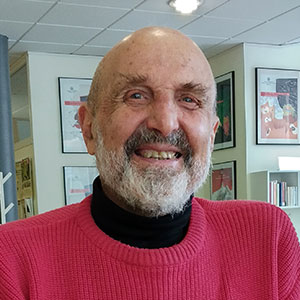 Azril Bacal Roij. PhD in Sociology, Uppsala University. Professor, Peace Education, CIPAE-Puebla, México (2005-2021). Guest-lecturer, Participatory Action-Research, Mälardalen University-Eskilstuna (2017-2021), Sweden. (R) Senior Lecturer, Sociology & Cultural Studies (1993-2006). Visiting Lecturer, Urban Planning, UCLA (1996). Rural Development, Universidad de Córdoba, (2001-2003). Endowment Humanities Scholar, Otterbein College, (1995).University teacher and Researcher (“Prototype of Integrated Farming”), Colegio de Postgraduados, Mexico (1981-1987). Associate Professor, Human Sciences, UNALM, Perú (1967-1980, 2011-2015). Guest-lecturer, Anthropology Department, Uppsala University. Advisor, Minister of Agriculture (Agrarian Reform, Rural Development, Peasant Training, Peasant Radio-Forum program), Perú. Academic Coordinator, Latinamerican Master Program in Communication (1967-1969). Chairman, Anthropology & Sociology, UDLAP-Puebla, México (1983-1985). Consultant, UNESCO-OREALC (Teacher-Training in Rural and Marginal Areas of Latin America (1981-1982). Consultant, IIIA (“Rural Development in Indigenous Areas of Latin America”). Academic Coordinator, Workshops ”Conflict Prevention and Management,” PCRI-Uppsala University-UNALM, Perú (2013-2017). Research: Ethnicity; Ethno-Politics; Ethnic Discrimination; Participatory Experiential Action-Research; White Nationalist-Populism; Rural Development; Self-Management; Higher Education; Quality of Working Life and Democratization – in Latin America,” SIDA (1989-1991); ethnic identity of elder Latinas, Research Program on ”Ethnic Aging, Research & Development, Social Services and Ethnology Department, Stockholm (1993-1997). Member, “Red Universidad y Compromiso Social,” Seville, Red Paulo Freire, Swedish PAR Association (SPARC). Board member of Research Committees 10, 05, 26, International Sociological Association; IRIPAZ; former member, Paulo Freire Institute. Popular Educator and Cultural Worker: film & poetry forum: “equal value of all human beings,” cultural division, Uppsala Municipal Council. Published poems in Spanish, Swedish, English. Engaged scholar in social movements for environmental, climate justice, and peace.
Azril Bacal Roij. PhD in Sociology, Uppsala University. Professor, Peace Education, CIPAE-Puebla, México (2005-2021). Guest-lecturer, Participatory Action-Research, Mälardalen University-Eskilstuna (2017-2021), Sweden. (R) Senior Lecturer, Sociology & Cultural Studies (1993-2006). Visiting Lecturer, Urban Planning, UCLA (1996). Rural Development, Universidad de Córdoba, (2001-2003). Endowment Humanities Scholar, Otterbein College, (1995).University teacher and Researcher (“Prototype of Integrated Farming”), Colegio de Postgraduados, Mexico (1981-1987). Associate Professor, Human Sciences, UNALM, Perú (1967-1980, 2011-2015). Guest-lecturer, Anthropology Department, Uppsala University. Advisor, Minister of Agriculture (Agrarian Reform, Rural Development, Peasant Training, Peasant Radio-Forum program), Perú. Academic Coordinator, Latinamerican Master Program in Communication (1967-1969). Chairman, Anthropology & Sociology, UDLAP-Puebla, México (1983-1985). Consultant, UNESCO-OREALC (Teacher-Training in Rural and Marginal Areas of Latin America (1981-1982). Consultant, IIIA (“Rural Development in Indigenous Areas of Latin America”). Academic Coordinator, Workshops ”Conflict Prevention and Management,” PCRI-Uppsala University-UNALM, Perú (2013-2017). Research: Ethnicity; Ethno-Politics; Ethnic Discrimination; Participatory Experiential Action-Research; White Nationalist-Populism; Rural Development; Self-Management; Higher Education; Quality of Working Life and Democratization – in Latin America,” SIDA (1989-1991); ethnic identity of elder Latinas, Research Program on ”Ethnic Aging, Research & Development, Social Services and Ethnology Department, Stockholm (1993-1997). Member, “Red Universidad y Compromiso Social,” Seville, Red Paulo Freire, Swedish PAR Association (SPARC). Board member of Research Committees 10, 05, 26, International Sociological Association; IRIPAZ; former member, Paulo Freire Institute. Popular Educator and Cultural Worker: film & poetry forum: “equal value of all human beings,” cultural division, Uppsala Municipal Council. Published poems in Spanish, Swedish, English. Engaged scholar in social movements for environmental, climate justice, and peace.
Jan van Boeckel, Professor Art & Sustainability, Research Centre Art & Society, Hanze University of Applied Sciences
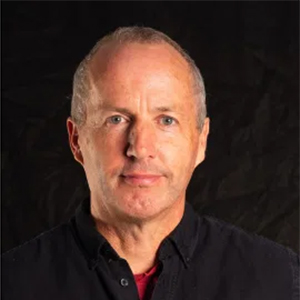 Jan van Boeckel is a Dutch artist-educator and researcher. In June 2020, he was appointed as professor art & sustainability at the Research Centre Art & Society of the Hanze University of Applied Sciences Groningen. Academic year 2018-2019 Jan was senior lecturer in visual art education at the Academy of Design and Crafts of Gothenburg University. That year Jan was also guest educator and researcher at CEMUS, the Centre for Environment and Development Studies in Uppsala, Sweden. From 2015 until 2018, he was professor in art education at the Estonian Academy of Arts in Tallinn. Jan van Boeckel has also been program director in design theory at the Iceland University of the Arts in Reykjavik (2014-2015). In 2019, he started teaching painting courses at MK24 in Amsterdam. Jan has regularly taught at Schumacher College in Dartington, the UK; at University College of Southeast Norway; and in previous years also at CEMUS in Sweden.
Jan van Boeckel is a Dutch artist-educator and researcher. In June 2020, he was appointed as professor art & sustainability at the Research Centre Art & Society of the Hanze University of Applied Sciences Groningen. Academic year 2018-2019 Jan was senior lecturer in visual art education at the Academy of Design and Crafts of Gothenburg University. That year Jan was also guest educator and researcher at CEMUS, the Centre for Environment and Development Studies in Uppsala, Sweden. From 2015 until 2018, he was professor in art education at the Estonian Academy of Arts in Tallinn. Jan van Boeckel has also been program director in design theory at the Iceland University of the Arts in Reykjavik (2014-2015). In 2019, he started teaching painting courses at MK24 in Amsterdam. Jan has regularly taught at Schumacher College in Dartington, the UK; at University College of Southeast Norway; and in previous years also at CEMUS in Sweden.
Ryan Carolan, Environmental Philosopher, PhD, Swinburne University of Technology
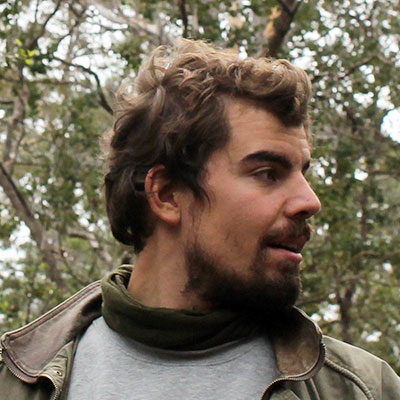 Ryan is an environmental philosopher from Gippsland, South East Australia who is living in Uppsala with his wife and son. He originally majored in journalism, with the aspiration of being an investigative journalist. But after sitting through the journalism ethics course, which defended a crude version of social Darwinism, he decided to try a few different courses and eventually found philosophy. Inspired by the work of a small group of visionary philosophers at Swinburne University inspired by Alfred North Whitehead’s process philosophy and under the leadership of the environmental philosopher Arran Gare, he continued his studies, completing his honours in 2016 and his PhD. in August 2024. Drawing heaving on process philosophy, his Ph.D. focused on the ecological and cultural crises on the Murray-Darling Basin – Australia’s largest river system, with a particular focus on the commodification of water rationalised and implemented under the logic of neoliberalism. As a response to the massive failures of neoliberalism and the culture of the Moderate Enlightenment, the thesis defends the ethics and politics of eco-poiesis as a viable alternative, and calls for a revival of the Radical Enlightenment and the creation of an ecological federalism in Australia and a global ecological civilisation. Ryan is now trying to establish himself in the Swedish academy.
Ryan is an environmental philosopher from Gippsland, South East Australia who is living in Uppsala with his wife and son. He originally majored in journalism, with the aspiration of being an investigative journalist. But after sitting through the journalism ethics course, which defended a crude version of social Darwinism, he decided to try a few different courses and eventually found philosophy. Inspired by the work of a small group of visionary philosophers at Swinburne University inspired by Alfred North Whitehead’s process philosophy and under the leadership of the environmental philosopher Arran Gare, he continued his studies, completing his honours in 2016 and his PhD. in August 2024. Drawing heaving on process philosophy, his Ph.D. focused on the ecological and cultural crises on the Murray-Darling Basin – Australia’s largest river system, with a particular focus on the commodification of water rationalised and implemented under the logic of neoliberalism. As a response to the massive failures of neoliberalism and the culture of the Moderate Enlightenment, the thesis defends the ethics and politics of eco-poiesis as a viable alternative, and calls for a revival of the Radical Enlightenment and the creation of an ecological federalism in Australia and a global ecological civilisation. Ryan is now trying to establish himself in the Swedish academy.
Anneli Ekblom, Professor, Department of Archaeology and Ancient History and Conservation, Uppsala University
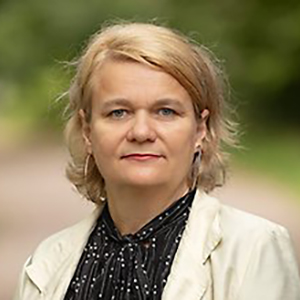 My interest in Historical Ecology was formed during the time I wrote my PhD thesis at Uppsala University, cross-examining many sources; archaeological data, written sources, interviews with local residents, palaeoecology and landscape analysis to produce an environmental history of a place. Furthermore, the thesis presented environmental data from a region, southern Mozambique where there had been no similar analysis, enabling me to pioneer in this area. After completion of my thesis, I was fortunate to be able to expand my interest also to southern Africa, working within Kruger National Park with vegetation history during a three year long post-doc at Long term ecology lab, Oxford University. Coming back to Uppsala I continued expanding my interest in historical ecology through various research projects both in Southern and Eastern Africa and Sweden. I have for a long time been engaged in the student-initiated and driven Centre for Environment and Development Studies (Cemus) both as a lecturer and examinator and as director (2017-2018).
My interest in Historical Ecology was formed during the time I wrote my PhD thesis at Uppsala University, cross-examining many sources; archaeological data, written sources, interviews with local residents, palaeoecology and landscape analysis to produce an environmental history of a place. Furthermore, the thesis presented environmental data from a region, southern Mozambique where there had been no similar analysis, enabling me to pioneer in this area. After completion of my thesis, I was fortunate to be able to expand my interest also to southern Africa, working within Kruger National Park with vegetation history during a three year long post-doc at Long term ecology lab, Oxford University. Coming back to Uppsala I continued expanding my interest in historical ecology through various research projects both in Southern and Eastern Africa and Sweden. I have for a long time been engaged in the student-initiated and driven Centre for Environment and Development Studies (Cemus) both as a lecturer and examinator and as director (2017-2018).
Apart from the above engagements I also have a number of commissions of trust: from Jan 2015 until present I am Chair of the Board of Societas Archeologica Upsaliensis (SAU) a contract archaeology company aimed to link rescue archaeology with academia and education and research. Since September 2014 I am member of the Scientific Steering Committee of Integrated History and Future for People on Earth IHOPE and now also chair the International Programme Office; From pril 2015-Sep 2018 Steeringgroup for Centre for Biological Diversity (CBM), SLU and Uppsala University and from March 2016-2018 I was Member of Swedish National Committee for Global Environmental Change, Royal Swedish Academy of Sciences.
Gloria L Gallardo Fernández, Professor emerita Södertörn University
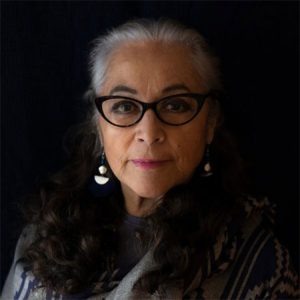 After university studies in Chile, Poland and México, I obtained my PhD degree in Sociology at Uppsala University (Sweden), where I was also promoted to associate professor. I was promoted to professor in Environmental Sciences at Södertörn University. In a nutshell, my research focuses on the use of natural resources in the interface between rural and global, the redefinition of land and sea ownership/possession with a focus on agro-pastoral communities and small-scale fishing.
After university studies in Chile, Poland and México, I obtained my PhD degree in Sociology at Uppsala University (Sweden), where I was also promoted to associate professor. I was promoted to professor in Environmental Sciences at Södertörn University. In a nutshell, my research focuses on the use of natural resources in the interface between rural and global, the redefinition of land and sea ownership/possession with a focus on agro-pastoral communities and small-scale fishing.
Before moving to Södertörn University, I was the Director of Research Studies for Cemus Research Forum (Cefo), part of the Uppsala Centre for Sustainable Development (CSD) – an educational and research platform for interdisciplinary studies on sustainable development jointly funded by Uppsala University and Swedish University of Agricultural Sciences (SLU). I was appointed in 2000, Senior Lecturer at the Department of Rural Development Studies at SLU, where I was also Program Director for the International Masters Program in Development Research, Application and Theory (MADRAT). In addition, I have worked, among others, as a Lecturer at the Department of Sociology at Uppsala University, and at the Department of Ecological Economics at Mälardalen University.
My present research concerns the political economy and ecology of mining conflicts in Chile together with an interdisciplinary group of researchers with the aim to develop theory and methodology to support empirical research involving co-production of knowledge and sustainable transformation strategies related to natural resource access and use.
I work presently as Senior Lecturer and professor in Environmental Sciences with focus on Global Development Studies at the School of Natural Sciences, Technology and Environmental Studies (NMT), where I teach in various courses such as Modern Development Theories, Research Design, Qualitative Methods, B-level Essay Writing, Contemporary Development Theories, etc. I am presently member of the Educational Advisory Group of ACCESS’s Research school − an academic collaboration between fourteen Chilean and Swedish universities and contact person for ACCESS at Södertörn University.
Dougald Hine, Co-founder of a school called HOME & the Dark Mountain Project
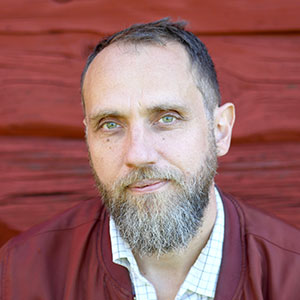
Photo: Ingrid Rieser
Together with Anna Björkman, he runs a school called HOME: a gathering place and learning community for those who are drawn to the work of regrowing a living culture. The school is based in Östervåla, 50km northwest of Uppsala.
Originally from the northeast of England, he has been based in Sweden since 2012 where he spent two years working as leader of artistic development for Riksteatern, the national touring theatre.
His writings include Uncivilisation: The Dark Mountain Manifesto (2009) with Paul Kingsnorth, The Crossing of Two Lines (2013) with Performing Pictures and Walking in the Void (2020) with Baldwin & Guggisberg.
Niclas Hällström, Director What Next Forum
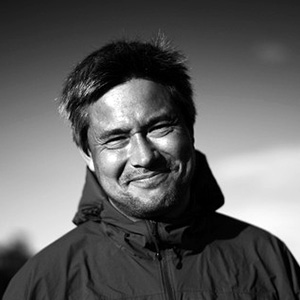 Niclas Hällström is Director of the What Next Forum in Uppsala, Sweden, founder of CEMUS and initiating CEMUS first course “Människan och naturen” (Humanity and Nature) given for the first time during the autumn semester 1992.
Niclas Hällström is Director of the What Next Forum in Uppsala, Sweden, founder of CEMUS and initiating CEMUS first course “Människan och naturen” (Humanity and Nature) given for the first time during the autumn semester 1992.
María Florencia Langa, PhD, Sociology, Uppsala University
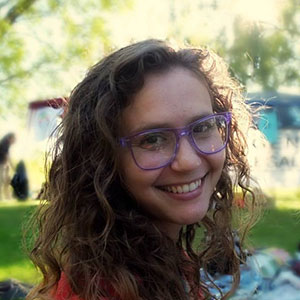 María Langa is an Argentinian researcher working in Sweden since 2015. She received her PhD at the Department of Sociology of Uppsala University in 2020 after successfully defending her dissertation Thick Nature: Morality and Practice in Swedish Urban Gardens. Her work is at the intersection of environmental and urban sociology as well as the sociology of morality and valuations. She studies the development of values for nature and the environment with attention to the role of material, technical and spatial arrangements. She has a background in media and communications studies and history, studying qualitative change in visual culture over time and the development of cities from early rural settlements in the North Patagonia Region in Argentina. She is part of several research groups and networks in Sweden and is currently participating in the sustainable development program at CEMUS, Uppsala University.
María Langa is an Argentinian researcher working in Sweden since 2015. She received her PhD at the Department of Sociology of Uppsala University in 2020 after successfully defending her dissertation Thick Nature: Morality and Practice in Swedish Urban Gardens. Her work is at the intersection of environmental and urban sociology as well as the sociology of morality and valuations. She studies the development of values for nature and the environment with attention to the role of material, technical and spatial arrangements. She has a background in media and communications studies and history, studying qualitative change in visual culture over time and the development of cities from early rural settlements in the North Patagonia Region in Argentina. She is part of several research groups and networks in Sweden and is currently participating in the sustainable development program at CEMUS, Uppsala University.
Doreen Stabinsky, Professor Global Environmental Politics, College of the Atlantic
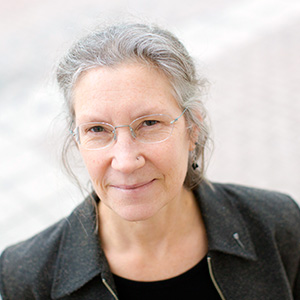 Doreen Stabinsky is professor of Global Environmental Politics at College of the Atlantic in Bar Harbor, Maine, USA.
Doreen Stabinsky is professor of Global Environmental Politics at College of the Atlantic in Bar Harbor, Maine, USA.
Her scholarly and other professional work lies at the intersections of land, food, and climate change. She actively researches, writes, and speaks about land and climate change issues, including recent work at the intersections of carbon markets, net zero, and nature-based solutions. She also carries out research and policy advocacy on the emerging issue of loss and damage from slow onset impacts of climate change and serves as advisor to a number of governments and international NGOs on these topics in ongoing negotiations under the UN Framework Convention on Climate Change and the Paris Agreement.
In 2015-2016, Doreen held the first Zennström visiting professorship in Climate Change Leadership at Uppsala University, Sweden. Her most recent publications include: Environmental Politics for a Changing World: power, perspectives and practice (written with Ronnie Lipschutz) and Missing Pathways to 1.5 *C: the role of the land sector in ambitious climate action (published by the Climate, Land, Ambition and Rights Alliance (CLARA), with several co-authors). She is a contributing author to the 6th Assessment Report of the Intergovernmental Panel on Climate Change (IPCC) currently in development.
Pella Thiel, Educator and Activist, End Ecocide Sweden
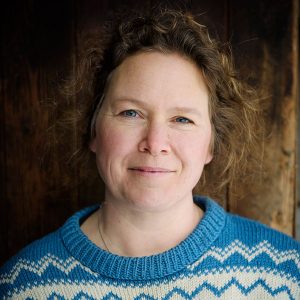
Photo: Annika af Klercker
